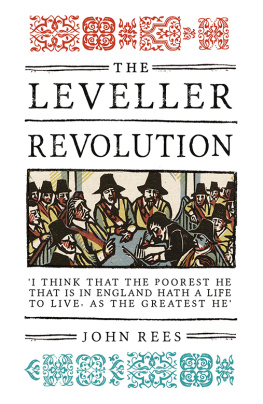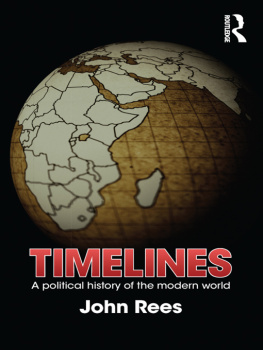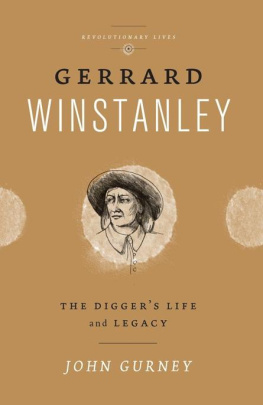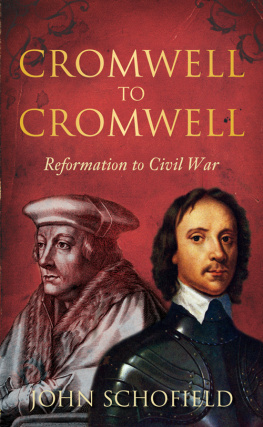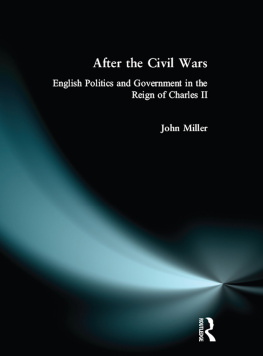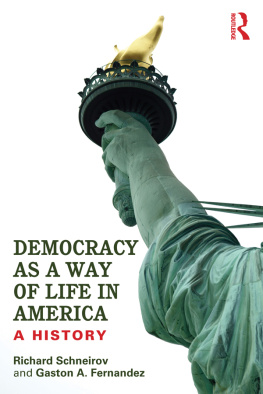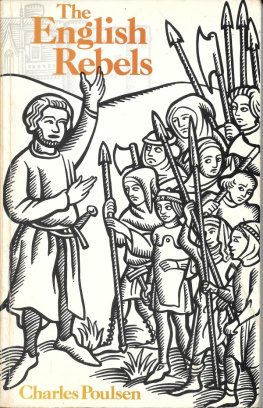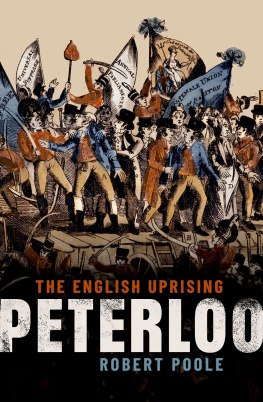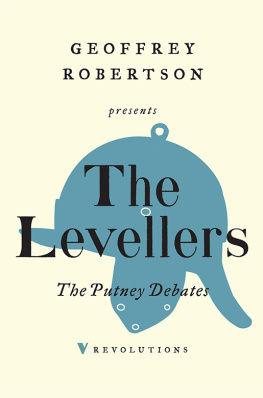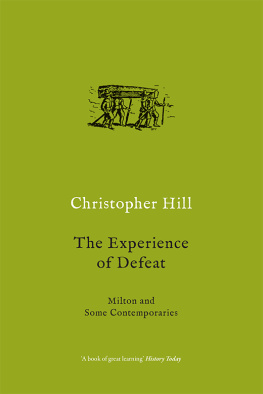THE LEVELLER
REVOLUTION
Radical Political Organisation in England,
16401650
John Rees

First published by Verso 2016
John Rees 2016
All rights reserved
The moral rights of the author have been asserted
1 3 5 7 9 10 8 6 4 2
Verso
UK: 6 Meard Street, London W1F 0EG
US: 20 Jay Street, Suite 1010, Brooklyn, NY 11201
versobooks.com
Verso is the imprint of New Left Books
ISBN-13: 978-1-78478-388-4
eISBN-13: 978-1-78478-391-4 (US)
eISBN-13: 978-1-78478-390-7 (UK)
British Library Cataloguing in Publication Data
A catalogue record for this book is available from the British Library
Library of Congress Cataloging-in-Publication Data
Names: Rees, John, 1957 author.
Title: The Leveller Revolution : radical political organisation in England, 16401650 / John Rees.
Description: Brooklyn, NY : Verso, 2016. | Includes bibliographical references and index.
Identifiers: LCCN 2016039447| ISBN 9781784783884 (hardback : alk. paper) | ISBN 9781784783914 (eISBN)
Subjects: LCSH: Levellers. | Great Britain History Civil War, 16421649. | Great Britain Politics and government 16421660.
Classification: LCC DA405 .R429 2016 | DDC 941.06/2 dc23
LC record available at https://lccn.loc.gov/2016039447
Typeset in Minion Pro by Hewer Text UK Ltd, Edinburgh
Printed in the UK by CPI Mackays
It must be the poore, the simple and meane things of this earth that must confound the mighty and strong.
Richard Overton, 1647
And well he therefore does, and well has guest,
Who in his Age has always forward prest:
And knowing not where Heavens choice may light,
Girds yet his Sword, and ready stands to fight
Andrew Marvell, 1655
In the most spontaneous movement it is simply the case that the elements of conscious leadership cannot be checked, have left no reliable document.
Antonio Gramsci, 192737
Contents
The English Revolution has been with me for as long as I can remember. On the desk in front of me now is the magnificent colour programme available to cinema-goers when the film Cromwell was released in 1970. Beside it is the facsimile reprint of the Levellers Agreement of the People from the Jackdaw education pack Number 33 on the English Civil War published in 1975. Over the intervening years since I acquired those publications I have accumulated many debts that I should acknowledge now. First I should pay tribute to some friends and teachers who are no longer here to read this book, much as I wish that they were. My old friend and comrade Paul Foot was one of the few whose own interest in the English Revolution was as compulsive as my own. I well remember trips to the bookshops of Charing Cross Road, when there were more of them than there are now, looking for rarities related to the English Revolution. For my fortieth birthday he gave me a copy of an 1843 edition of Clarendons History of the Rebellion with an inscription which read, Hope this helps with the definitive study of the Revolution by J Rees, pubn. date 1999? I am afraid Ive missed his deadline and even more afraid that it will fall even farther short of being definitive for the lack of his criticism. I have also missed the intellectual stimulation of knowing Brian Manning, with whom I worked in arranging the republication of his unrivalled The English People and the English Revolution and the publication of his impressive body of subsequent work. I was not a personal friend of Christopher Hill but I did work with him in publishing and republishing some of his work late in his life. My view of the Revolution differs from Hills, but no one writing about the seventeenth century, however critical some revisionist historians may have been, has anything but an enormous debt to his magnificent body of work.
More recently I had the considerable piece of good fortune to find myself quite by accident sharing a platform with Ariel Hessayon at the Institute of Historical Research in a seminar organised by the London Socialist Historians some years back. I decided afterwards to write asking him if he would supervise doctoral research on the Levellers. From that moment on he has been encouraging, intellectually stimulating, and supportive far beyond any professional obligation. His careful supervision and generous assistance during my research were invaluable in the completion of that work. I am also grateful to the History Department at Goldsmiths, University of London, for awarding me a bursary during my study and for extending the courtesy of making me a visiting research fellow during the completion of this book. Not every doctoral candidate enjoys their viva. That I did is accounted for by that fact that Jason Peacey and Rachel Foxley had an engaged and constructive approach that after four years of research every candidate hopes for from their examiners.
I have some more specific thanks to record as well. I am grateful to Justine Taylor, the archivist at the Honourble Artillery Company, and to Tim Wells for sharing the results of his work in the same archive. Norah Carlin and Jordan Downs were both kind enough to share very useful unpublished papers with me. Stephen Freeth, the archivist of the Vintners Company, was helpful in respect of material on the Saracens Head tavern and other matters to do with the history of the City. Dr Alastair Massie at the National Army Museum was of considerable assistance in locating the standards of the London Trained Bands. Frances Henderson, who I came across by chance in Worcester College, was helpful in respect of the discussion of John Redes links with the Levellers, as was family historian Gordon Rede. At Verso, Leveller enthusiast Rowan Wilson has always been supportive of any scheme involving the recovery of the English Revolution. Special thanks are due Leo Hollis, who has been a magnificent, enthusiastic and engaged editor. The book would be so much the poorer without his efforts.
Some friends have heard more detail about the Levellers than can conceivably have been good for them. So thanks for patience are due to Chris Nineham, Feyzi Ismail, Sam Fairbairn, Jane Shallice, Andrew and Anna Murray, Clare Solomon, John Westmoreland, Mike Simons, Andrew Burgin and Kate Hudson, Shelia Wiggins and Haydn Wheeler (whose skills as a landscape gardener helped uncover the graves of John Redes family and friends one sunny day in the Baptist burial ground in Porton, Wiltshire). David Shonfield is one of that remarkable generation of secular Jewish intellectuals who just seem to know something interesting about practically everything, including the seventeenth century. Im grateful for his company and for his hospitality at his house near San Leolino, Tuscany, where part of what follows was written. But the longest and deepest debt of all is to Lindsey German.
John Rees, May 2016
In quoting from seventeenth-century documents I have retained the original spelling and punctuation except in a small minority of cases where to do so would seriously impair the readers chances of making sense of the text. I have done this not merely for the sake of accuracy but because I think it helps us in some way I still cannot quite define to better understand the thoughts of those living over 300 years ago if the spelling and punctuation are retained.

